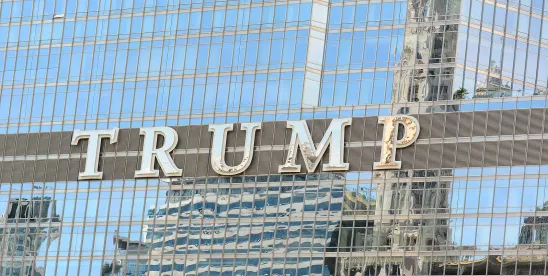As the Trump Administration embarks on its second term, significant shifts in government enforcement priorities are quickly taking shape. Not surprisingly, this administration appears to be focusing on immigration, drug and violent crime offenses, and traditional fraud rather than more novel white-collar enforcement. Additionally, it appears as though the Department of Justice will face potential resource issues due to the efforts of the Department of Government Efficiency (DOGE). Whether that is through hiring freezes, resignations resulting from ending remote work, layoffs, and potential buyouts of federal employees, the reduction of resources could have a substantial impact on staffing for white-collar enforcement cases, which tend to be resource intensive. Nonetheless, businesses and industry professionals should be aware of these evolving trends to ensure compliance and readiness for potential government investigations. Below we highlight what we expect to see throughout this administration’s term.
- Immigration: The Trump Administration has reaffirmed its commitment to stringent immigration enforcement. Prior to this administration taking office, agencies like the Department of Labor had been focused on underage labor violations and holding businesses accountable for third party staffing companies. Now, however, the focus will shift to the removal of anyone not legally in the United States, likely leading to an increase in ICE raids and I-9 audits, including in places like hospitals, schools and places of worship, all of which used to be safe havens for this type of enforcement activity.
- DEI and False Claims Act Liability: President: President Trump's executive order aimed at eliminating diversity, equity, and inclusion (DEI) policies introduces new compliance challenges for federal contractors and grant recipients. The order reverses federal contracting requirements dating back nearly 60 years, which obligated federal contractors and subcontractors to implement affirmative action programs. The January 21, 2025, executive order requires federal contractors and grant recipients to agree that their “compliance in all respects with all applicable Federal anti-discrimination laws is material to the government’s payment decisions” under the False Claims Act (FCA). Second, it requires federal contractors and grant recipients to certify that they do “not operate any programs promoting DEI that violate any applicable Federal anti-discrimination laws.” The new certification and materiality requirements create heightened FCA risk for clients who participate in government programs and may incentivize whistleblowers to initiate qui tam actions.
- Health Care: Health care enforcement, particularly those involving the FCA, is anticipated to continue at a steady pace. During President Trump’s first term, health care enforcement actions increased in his second year and remained steady thereafter, so we can likely expect a similar trend this term. Additionally, the newly established Department of Government Efficiency (DOGE) is taking steps to actively mine data for fraud, particularly in Medicare and Medicaid, which could lead to an increase in enforcement activities in the healthcare sector.
- Foreign Corrupt Practices Act: While the Department of Justice (DOJ) achieved record enforcement levels for Foreign Corrupt Practices Act (FCPA) cases during the previous term, President Trump has signed an executive order directing the DOJ to pause criminal prosecutions related to the bribing of foreign government officials under the FCPA and instructing Attorney General Pam Bondi to prepare new guidelines for enforcement. The executive order comes a week after Attorney General Pam Bondi had already announced via a memo that the DOJ would be scaling back laws governing foreign lobbying transparency and bribes of foreign officials. In the memo, Attorney General Bondi also disbanded the National Security Division’s corporate enforcement unit and directed the Department of Justice’s money laundering office to prioritize cartels and transnational crime.
- SEC Enforcement: We expect a major scaling back on the SEC’s focus on cryptocurrency, internal accounting and disclosure control violations. President Trump’s nominee as SEC chairman, Paul Atkins, is a known supporter of the crypto industry. Instead, we anticipate a renewed focus on traditional securities fraud cases, including like retail investor protection, Ponzi schemes, and insider trading. Under Chair Gensler, corporate penalties and disgorgement reached record highs, but with a Republican-controlled SEC we are likely to see smaller penalties and an adherence to disgorgement limitations set by the Supreme Court.
- Antitrust: Antitrust enforcement is expected to pivot away from merger scrutiny towards addressing concerns related to "Big Tech" and alleged censorship. Additionally, there may be enforcement actions targeting alleged collusion on DEI issues, reflecting the administration's executive orders and stated policy goals. Industries under high public scrutiny and foreign corporations should be particularly vigilant in preparing for potential agency scrutiny.
As the enforcement landscape continues to evolve, it will be crucial to stay informed and proactive.




 />i
/>i
